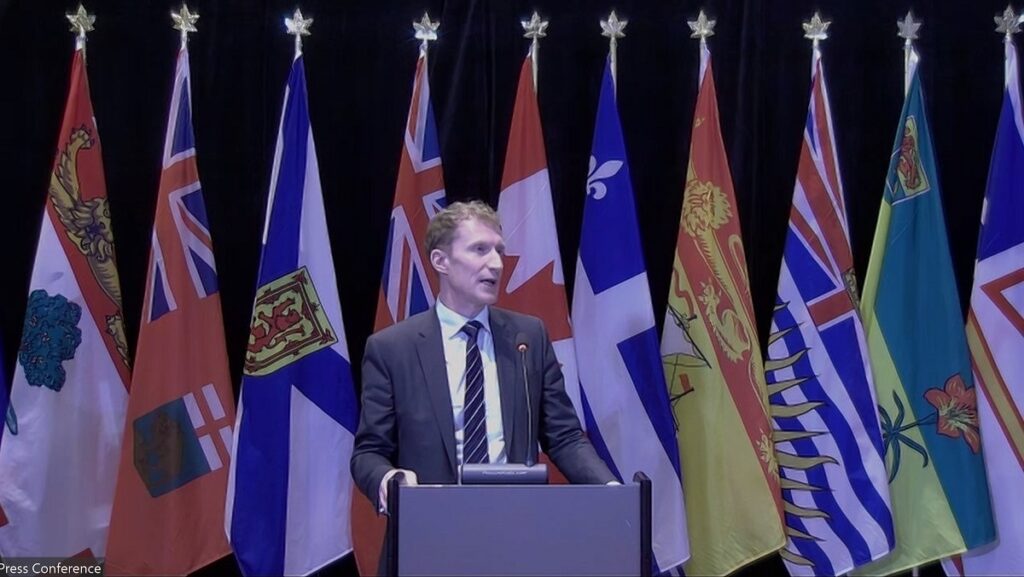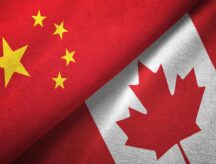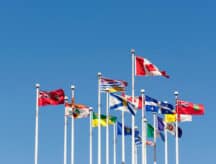Canada’s immigration ministers meet in Toronto; four provinces hold PNP draws

Yesterday, Immigration Minister Marc Miller met with provincial and territorial immigration ministers in Toronto to discuss shared priorities.
The ministers meet twice a year and together make up the Federation of Ministers Responsible for Immigration (FMRI). The FMRI is a decision-making body with the goal of supporting a flexible, timely, and effective immigration system for Canada. The FMRI's mission is to advance joint immigration priorities and to enhance Canada's immigration policies and programs.
Discover if You Are Eligible for Canadian Immigration
What the FMRI discussed on November 17, 2023
Following the meeting, Minister Miller held a press conference, where he reiterated many of the points made during the release of the Immigration Levels Plan 2024-2026 and explained his department believes the Plan will help create sustainable population growth in Canada while bringing in much-needed support in the healthcare and construction sectors.
Federal and provincial immigration ministers also released a statement after the meeting highlighting key discussion points, including:
- Reducing duplication among federal-provincial economic class immigration programs and reducing processing times
- Supporting Francophone immigration outside Quebec
- Delivering a more responsive, client-centred economic immigration system
- Reducing barriers and streamline foreign credential recognition
- Exploring how governments can work together to address pressures on housing, infrastructure and social services
- Considering expanding settlement services eligibility, particularly among asylum claimants and temporary residents on a clear path to permanent residence
- Improving the integrity of Canada's International Student Program
- Aligning work permits with provincial-territorial labour market needs
Multi-year provincial levels plan
The most recent FMRI meeting took place in March in Halifax.
During the Halifax meeting, the FMRI spoke more about the endorsement of a multi-year levels plan for the Provincial Nominee Program (PNP).
This means provincial and territorial governments will receive their PNP allocations up to three years in advance. Before this, provinces were only advised of the number of immigrants they could select for the PNP one year at a time.
A multi-year plan can benefit the provinces by ensuring that they can provide sufficient settlement services, housing, healthcare, and other infrastructure for newcomers while balancing the needs of those already living within a province.
At the time, the ministers discussed other relevant issues such as improving international education recognition and making it easier for in-demand professionals, such as those in healthcare and construction occupations, to start working in Canada sooner.
They also discussed the expansion of the Atlantic Immigration Program and the Rural and Northern Immigration Pilot Program.
Canada's new immigration strategy
Provincial priorities tend to align with the federal government. Immigration Refugees and Citizenship Canada (IRCC) recently released a new Strategy: An Immigration System for Canada’s Future.
In the Strategy, IRCC mentions the need for increased consultations with provincial governments and other partners and stakeholders to help adopt a whole-of-government approach to support sustainable levels of immigration that will strengthen Canada’s economy and workforce.
This approach was also referenced in the creation of the federal Immigration Levels Plan 2024-2026. Canada will admit up to 500,000 new permanent residents per year in both 2025 and 2026. Among them, 110,000 will arrive through the PNP in 2024 and 120,000 will arrive through the PNP in 2025 and 2026.
Immigration a shared responsibility
IRCC works closely with the provinces and territories because immigration is a shared responsibility under Canada's Constitution. Under the Immigration and Refugee Protection Act (IRPA), the legislation that governs Canada’s federal and provincial immigration system, provinces can select some of the economic immigration candidates who are the most likely to support local economies and integrate into the provincial workforce.
That being said, IRCC still makes the final decision on whether a nominated candidate will become a permanent resident of Canada.
Only Quebec and Nunavut do not have PNPs. Quebec has a separate agreement with the federal government that gives it total control over economic immigration to the province.
Recent PNP draw results
The FMRI meeting followed an eventful week where four provinces announced the results of recent PNP draws. The results are summarized below:
British Columbia
On November 16, British Columbia invited more than 219 candidates in the most recent BC PNP draw.
Among the five draws, the largest was a general draw inviting 116 candidates from the Skilled Worker, International Graduate and Entry Level and Semi-Skilled streams. Minimum scores ranged from 94-115 depending on the stream.
The remaining four draws were targeted for Skilled Worker and International Graduates in specific occupations.
- Early childcare educators and assistants: 59
- Healthcare: 32
- Other priority occupations: Less than five
Candidates in these draws needed a minimum score of 60.
BC also held its first targeted draw for those in construction occupations. The province invited 12 Skilled Worker and International Graduate candidates with a minimum score of 75.
Manitoba
Manitoba invited 301 candidates to apply on November 16.
The province held four draws for candidates in three streams.
Among Skilled Workers in Manitoba, 100 candidates with a minimum score of 809 received invitations to apply in a general draw for all occupations.
There was a second draw for Skilled Workers that was occupation specific and considered a range of National Occupational Classification (NOC) codes from healthcare, education and homecare.
The remaining draws saw 61 candidates invited from the International Education stream and 48 Skilled Workers overseas with a minimum score of 721.
Prince Edward Island
PEI invited 141 candidates in the PEI PNP also on November 16.
The province invited 134 Labour and Express Entry candidates working for a PEI Employer with a minimum EOI score of 55.
There was also a small draw for Business Work Permit Entrepreneur candidates. These seven candidates needed a minimum score of 80 to be considered.
PEI has invited 2527 candidates through these two streams in the past 12 months.
Alberta
Alberta invited 16 Express Entry candidates on November 9. These candidates were in the Dedicated Healthcare Pathway with Alberta Job offer stream and required a minimum Comprehensive Ranking System score of more than 300.
The Alberta Advantage Immigration Program (AAIP) shows that candidates in this stream who submit their final application can expect to wait up to two months for a final decision.
- Do you need Canadian immigration assistance? Contact the Contact Cohen Immigration Law firm by completing our form
- Send us your feedback or your non-legal assistance questions by emailing us at media@canadavisa.com






